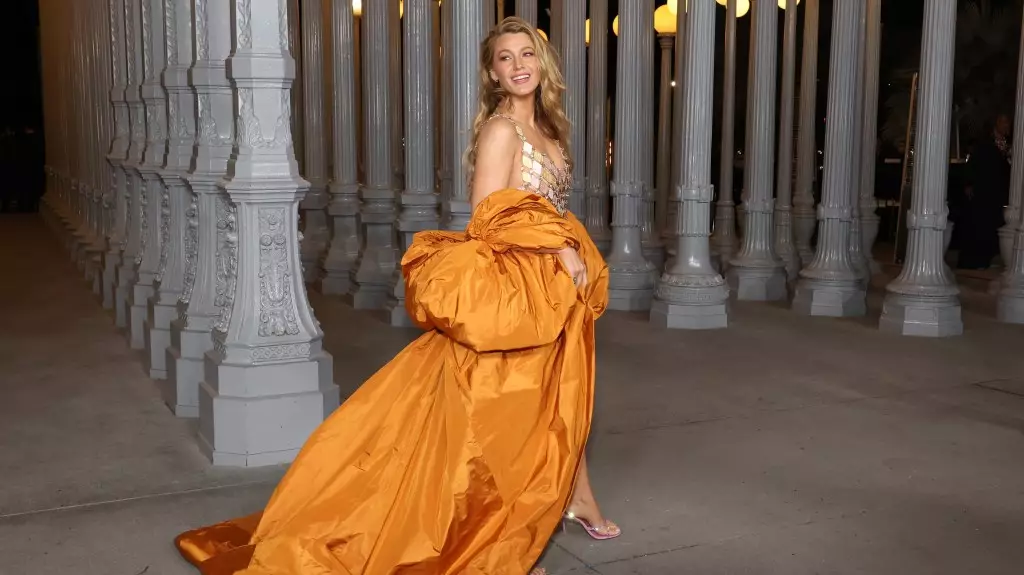The entertainment industry, often idolized for its glitz and glamour, frequently reveals a murkier side beneath its surface. The recent lawsuit filed by Blake Lively against her co-star and director Justin Baldoni shines a glaring light on issues of workplace misconduct, sexual harassment, and the retaliation that can ensue when one dares to speak out. This article delves into the intricate details and implications of the lawsuit, as well as the broader context of the entertainment environment that allows such behavior to proliferate.
The Allegations: A Hefty Legal Challenge
Blake Lively has initiated a substantial legal battle, alleging that Justin Baldoni not only harassed her but also orchestrated a retaliatory smear campaign. At the heart of these claims lies a complex narrative involving not just personal interactions but corporate dynamics and public perception. The lawsuit, which was filed with the California Civil Rights Department, paints a grim picture of alleged improprieties during the production of the film adaptation of Colleen Hoover’s novel “It Ends With Us.” Lively claims that Baldoni’s behavior created an atmosphere of discomfort that significantly impacted her professional engagements.
The legal documents highlight her decision to cancel critical appearances, including a hosting role for the highly anticipated Season 50 premiere of “Saturday Night Live.” The transition from Lively to Jean Smart for the hosting role signifies not just a change in personnel but underscores the damaging effects of alleged harassment. Lively’s claims emphasize that her ability to engage publicly was hindered by the need to navigate the fallout from Baldoni’s alleged misconduct.
The consequences of the alleged misconduct extended far beyond Lively’s immediate discomfort, reaching into her professional obligations and brand partnerships. The lawsuit states she withdrew from a significant corporate event for her haircare line and the aforementioned SNL premiere, illustrating the immediate and tangible ramifications of the toxicity on set. Such withdrawals can equate to financial losses and damaged reputations, highlighting the precarious balance that public figures must maintain when faced with misconduct.
Baldoni’s alleged behavior, including uninvited improvised scenes and personal disclosures that bordered on inappropriate, transformed the workplace into a hostile environment. While the film’s subject matter revolves around themes of domestic violence, it is ironic that the set commanded attention for its own damaging internal dynamics. This juxtaposition speaks volumes about the urgent need for accountability and robust workplace protocols.
One of the most disturbing aspects of this case is the allegation that Baldoni and his production company, Wayfarer Studios, engaged in a “sophisticated press and digital plan” to retaliate against Lively. This suggests an insidious level of premeditation that crosses ethical boundaries, transforming personal conflict into a tactical assault on Lively’s reputation. The involvement of seasoned crisis PR consultant Melissa Nathan indicates the seriousness of the situation, as it echoes a familiar narrative in Hollywood—powerful figures retaliating through media manipulation rather than accountability.
In the aftermath of the lawsuit’s filing, Baldoni’s abrupt departure from WME, the agency that previously represented him, adds a significant layer to the narrative. This move further suggests the weight of the allegations and the industry’s sometimes reactive nature toward such claims, which can tarnish reputations almost instantly.
In the face of these allegations, there has been an outpouring of support for Lively from various industry figures, including author Colleen Hoover. Hoover’s public endorsement of Lively’s character stands in stark contrast to Baldoni’s lawyer’s incendiary dismissal of the allegations as “serious and categorically false.” Such exchanges point to a polarized environment where public perception can quickly shift based on the circumstances surrounding allegations of misconduct.
Ultimately, this lawsuit is more than just a legal contention between two Hollywood figures; it is a representation of a larger movement in the entertainment industry toward accountability and transparency. As Lively’s story unfolds, it will be instrumental in shaping the dialogue around workplace safety, respect, and the responsibility of individuals in positions of power.
The unfolding drama surrounding this lawsuit inevitably raises questions about Hollywood’s culture and the responsibilities that come with it—how will this affect industry standards, and can it lead to meaningful changes that protect individuals from harassment and retaliation? Only time will tell, but Lively’s brave decision to speak out may serve as a catalyst for change in an industry that has long turned a blind eye to such issues.

Leave a Reply